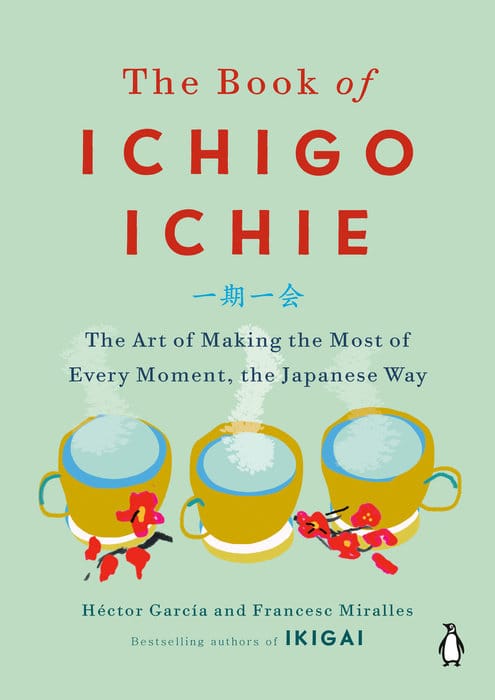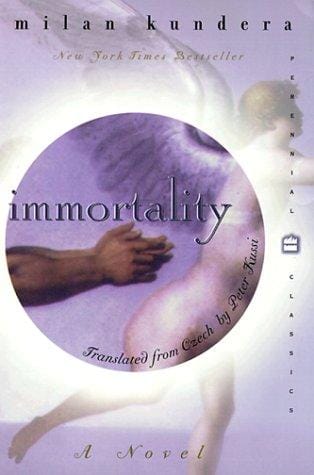The Book of Ichigo Ichie: Embracing the Art of Living in the Moment
Discover the Japanese philosophy of ichigo ichie and learn how The Book of Ichigo Ichie teaches you to savor each unrepeatable moment in daily life.

Introduction
Have you ever looked back on a pleasant afternoon and wished you had savored it more deeply? The Book of Ichigo Ichie: The Art of Making the Most of Every Moment, the Japanese Way by Héctor García and Francesc Miralles argues that every encounter, no matter how ordinary it may seem, is a once-in-a-lifetime event. Rooted in Zen Buddhism, the tea ceremony, and the aesthetics of wabi-sabi, the concept of ichigo ichie invites us to be fully present so that life does not drift past in a blur. In roughly 800 words, let us explore what the book teaches, why it matters, and how you can weave its wisdom into your daily routine.
What Is Ichigo Ichie?
The phrase ichigo ichie is often translated as “one time, one meeting.” In the Japanese tea ceremony, the host treats each gathering as unrepeatable, arranging the utensils, flowers, and conversation so that guests feel treasured. García and Miralles show that this spirit should extend beyond the tearoom to coffee breaks with coworkers, a child’s bedtime story, or even the few breaths you take while waiting at a red light. When you recognize each moment as unique, you naturally give it your undivided attention and respond with gratitude instead of distraction.
The authors point out that most of us live on autopilot, toggling between regrets about yesterday and to-do lists for tomorrow. Ichigo ichie snaps us out of that trance by reminding us that never again will this precise configuration of people, feelings, and weather reappear. The lesson is simple yet radical: if you do not notice what is happening now, the chance is gone forever.
Key Lessons from the Book
1. Presence Over Perfection
Mindfulness often gets tangled in rules—sit straight, breathe a certain way, count to ten. The book reframes mindfulness as curiosity. Whether the moment is joyful or awkward, stay open to it. Perfection is not required; presence is.
2. Celebrate the Ephemeral
Cherry blossoms, the authors note, are treasured precisely because they fall within days. Likewise, milestones such as graduation or a family dinner carry value because they will never be duplicated. By leaning into impermanence, you heighten appreciation and reduce anxiety over change.
3. Craft Rituals That Anchor You
The tea ceremony is essentially a scripted ritual that makes savoring easier. García and Miralles encourage readers to create their own rituals—lighting a candle before journaling, ringing a bell before a team meeting, or taking three conscious breaths before answering the phone. A repeated, intentional gesture can act as a doorway into ichigo ichie.
4. Listen as an Offering
When another person speaks, give them the gift of total attention. Put down devices, maintain gentle eye contact, and mirror their emotions. True listening turns an ordinary chat into a memorable encounter for both parties.
5. Collect Moments, Not Things
The book urges us to shift our focus from possessions to experiences. Souvenirs can be delightful, but they should point back to an inner memory, not replace it. The real treasure is the felt experience lodged in your heart.
How to Apply Ichigo Ichie in Daily Life
Create an environment free of digital clutter: Silence notifications during meals and conversations. Multitasking is the enemy of ichigo ichie because it fractures awareness.
Perform a daily “first time” exercise: Choose an activity you do routinely—brushing teeth, opening your laptop—and imagine you are doing it for the very first time. Notice textures, sounds, and emotions. This simple practice rewires your brain to notice the extraordinary hidden in the ordinary.
Use your senses as anchors: When you start to drift into worry, pick a sensory detail: the hum of an air conditioner, the tang of coffee on your tongue, the pattern of light through a window. Sink fully into that sensation for a few breaths. You have just performed micro-ichigo ichie.
Schedule unstructured “now time”: Productivity culture glorifies filling every slot on the calendar. Flip the script by blocking off at least fifteen minutes of agenda-free time each day. When the slot arrives, ask, “What does this moment want from me?” Maybe it is stretching, calling a friend, or simply watching clouds.
Share gratitude aloud: At the close of a meeting or family meal, thank everyone for the irreplaceable moment you have shared. Speaking gratitude cements it in memory and signals to others that they, too, are living something unique.
Benefits Backed by Science
While ichigo ichie emerges from Japanese culture, modern neuroscience supports its claims. Studies on mindfulness show reductions in cortisol, improved immune response, and a thicker prefrontal cortex. Psychologists have also found that savoring positive experiences increases overall life satisfaction and resilience. Thus, practicing ichigo ichie is not only poetic; it is physiologically and emotionally protective.
Common Obstacles and How to Overcome Them
Distraction: Keep a small notebook or note-taking app to offload intrusive thoughts. Write them down and return to the moment.
Restlessness: If staying present makes you fidgety, channel energy through mindful movement—slowly stretch, walk, or even wash dishes with full attention on each bubble of soap.
Emotional Overwhelm: Some moments are painful. Ichigo ichie does not mean forcing happiness. Instead, acknowledge feelings with kindness, perhaps placing a hand over your heart, and note, “This, too, is unrepeatable.”
Final Thoughts
The Book of Ichigo Ichie is more than a gentle self-help manual; it is a call to participate in life as it unfolds. You do not need a meditation cushion or a trip to Kyoto. You need only the willingness to meet each encounter with fresh eyes, to listen with your whole body, and to remember that the present is a fragile, luminous gift. The next time you sip tea, hear a friend laugh, or watch the sun paint your wall gold, pause. Whisper to yourself, “Ichigo ichie.” In doing so, you transform fleeting seconds into a string of shimmering pearls—your unique necklace of lived experience.



